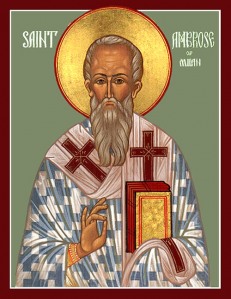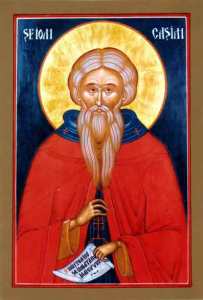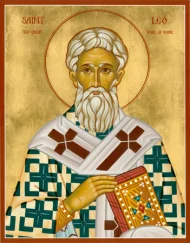 The mind is a wonderful thing, and therein we possess that which is after the image of the Creator.
The mind is a wonderful thing, and therein we possess that which is after the image of the Creator.
[…] But there are in it two faculties; in accordance with the view of us who believe in God, the one evil, that of the dæmons which draws us on to their own apostasy; and the divine and the good, which brings us to the likeness of God.
When, therefore, the mind remains alone and unaided, it contemplates small things, commensurate with itself.
When it yields to those who deceive it, it nullifies its proper judgment, and is concerned with monstrous fancies.
Then it considers wood to be no longer wood, but a god; then it looks on gold no longer as money, but as an object of worship.
If on the other hand it assents to its diviner part, and accepts the boons of the Spirit, then, so far as its nature admits, it becomes perceptive of the divine.
[…] The mind which is impregnated with the Godhead of the Spirit is at once capable of viewing great objects; it beholds the divine beauty, though only so far as grace imparts and its nature receives.
[…] The judgment of our mind is given us for the understanding of the truth.
Now our God is the very truth. So the primary function of our mind is to know one God, but to know Him so far as the infinitely great can be known by the very small.
When our eyes are first brought to the perception of visible objects, all visible objects are not at once brought into sight.
The hemisphere of heaven is not beheld with one glance, but we are surrounded by a certain appearance, though in reality many things, not to say all things, in it are unperceived;—the nature of the stars, their greatness, their distances, their movements, their conjunctions, their intervals, their other conditions, the actual essence of the firmament….
Nevertheless, no one would allege the heaven to be invisible because of what is unknown; it would be said to be visible on account of our limited perception of it.
It is just the same in the case of God. If the mind has been injured by devils it will be guilty of idolatry, or will be perverted to some other form of impiety. But if it has yielded to the aid of the Spirit, it will have understanding of the truth, and will know God.
But it will know Him, as the Apostle says, in part; and in the life to come more perfectly. For “when that which is perfect is come, then that which is in part shall be done away” (1 Cor. 13:10).
Basil the Great (330-379): Letter 233.
















